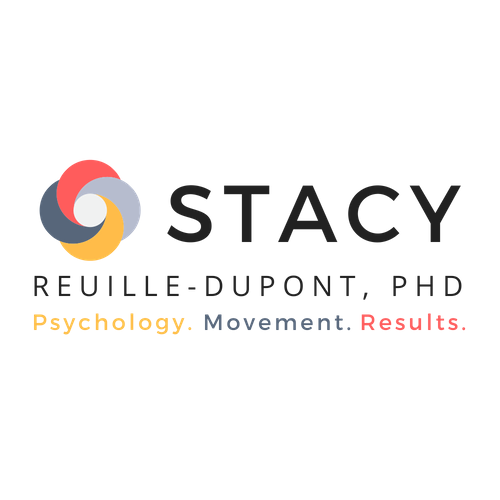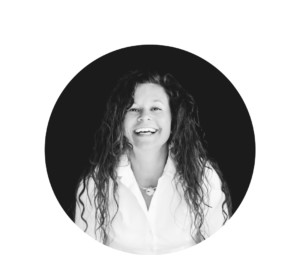I meet with a lot of people who feel that it is someone else’s responsibility to make them happy. They are easily knocked off course when negative things happen because they have put their emotional experience in another’s hands. They often feel out of control and play games in relationships – “I’ll hurt you before you hurt me” kind of mentalities. Getting hurt is a matter of life. We love people and they leave us. We want something and we do not get it. We work really hard and we still fail. We want to feel good enough, but we don’t. In each of these situations, acceptance is the key to navigating the difficult emotions. By accepting what is in this moment just as it is we have an opportunity to objectively examine what is happening. From this place, we can determine what worked, what did not and where we can learn more about what to do next for a better chance at success.
Understanding Impact and Influence
We are not responsible for another’s feelings. This means I cannot make you mad, happy or sad. And you cannot make me mad, happy or sad. We cannot “make someone feel something”. They are 100% responsible for their feelings and actions. I am completely in control of my emotional experiences and you are in control of yours. Many want to feel the good sensations that come from “making someone happy” and work to avoid feelings of “I made you sad”. In reality, you did neither. You cannot make someone happy or sad because you cannot control how they are internally reacting to your actions. I have no control over how you experience what I say. I might be able to influence you but I cannot control you. Your experience of what I do gets filtered through your past experiences and is based on how you are feeling at a particular moment. I cannot control if you are hungry, annoyed with something else or overwhelmed by another situation. Therefore I cannot control how you will receive my actions (actions include statements, behaviors, and even emotions). As a result, I cannot control how you will react to me.
In our relationships, we often “take things personally” when the other person does something that impacts us. As I am impacted I have a reaction. I may feel sad, hurt or angry. This response may be based on similar past experiences. My reaction to another’s action(s) may be based on an expectation I had about the situation. When I am impacted it is hard to remember that what they do is about who they are, not about me. How they speak to me, the words they use, the actions they do are all about how they orient to the world. I am only responsible for how I orient to the world and how I react. I am in control of my emotions, thoughts, and behaviors.
What other people do and say reflects the experiences of the other person. However, we tend to interpret what they do as a reflection of us. This misguided interpretation leaves us dealing with our own core wounds and struggles. We feel unsafe, unheard, negated, less than, etc rather than full in our experience of being. As a result of the negative impact, we are experiencing we respond as though what is happening is happening to us rather than just impacting us at the moment. We control our response to everything that impacts us and do not have to be knocked off a positive track just because we were negatively impacted by someone else’s behaviors.
What to focus on so you don’t take people’s actions personally
To help ourselves maintain focus on our goals we need to be able to recognize what is happening. When we slow down and recognize that their actions are about them we can take control of our reaction. We recognize we can feel our full selves just because we exist. We no longer need anyone else to tell us otherwise. We can embrace our full experience and decide how to deal with it – especially when we do not like it.
In order to do this well, we have to be willing to take responsibility for our own experience and our own actions. You have to decide how you want to be in the world. What are your goals for your experiences, expectations for yourself and what do you want to accomplish? We have to look at how we speak to others, the word choices we use, the body language we project, and the actions we do or do not do. We have to take ownership of how we have hurt others. We have to notice when we are triggered back to early wounds and experiences that hurt us so we do not perpetuate the hurt. And we have to take responsibility for our own healing. This is hard work. Many people want to say – “there is nothing wrong with me, it’s so and so’s fault. I am fine and good and right”. This way we protect ourselves from our own experiences of feeling less than.
Healing
If we can take responsibility for our own experiences we can determine how to heal them. We can take our power back and find ourselves strong in our sense of worth. We can embrace being good enough, smart enough, wanted, needed, etc. We can own our individual gifts while allowing others to own theirs. We do not need to tear them down so we feel big anymore. We can allow them to be who they are, doing what they do without getting caught in our own story, old hurts and core wounds. We can choose to set boundaries, choose to engage with them or not. We can decide how we want to react and who we want to be without worry about what anyone else is doing.
Easier said than done, I know. One way to make sure you are moving in a positive direction is by helping yourself focus on what you can do. Find a daily routine that helps you feel grounded. Maybe it is a morning meditation, reading, and reflection or movement plan. Your job is to focus on what you want, your goals for your future, and what helps keep you moving toward them. It might be building new behaviors or letting go of old ones. Sometimes actions needed will be clear and other times it will not be clear. Sometimes this will be small and sometimes it will be big changes in your life.
Your job is to stop and pay attention to you. What do you need in this moment? What do you need to do right now – not what you want the other person to do, or say or be. What would help you take care of you? Put your attention where you want it to go … on creating the life you want to live.
Ready to Make a Change?
And as always, if you are struggling you can schedule a 15 min Q&A appointment to see if it’s time to give yourself the gift of therapy. When else can you talk about yourself for an hour with someone trained to deeply listen to your core, not just the story you tell yourself.
Upcoming Programs:




 Twitter
Twitter Facebook
Facebook Linkedin
Linkedin






